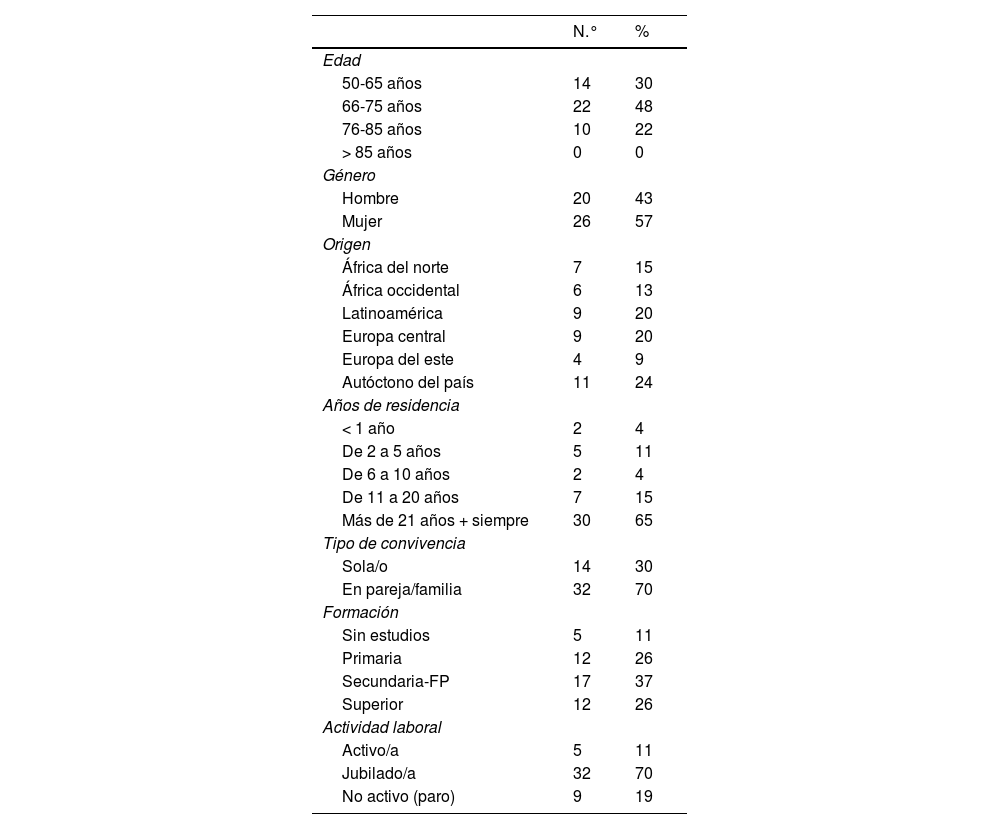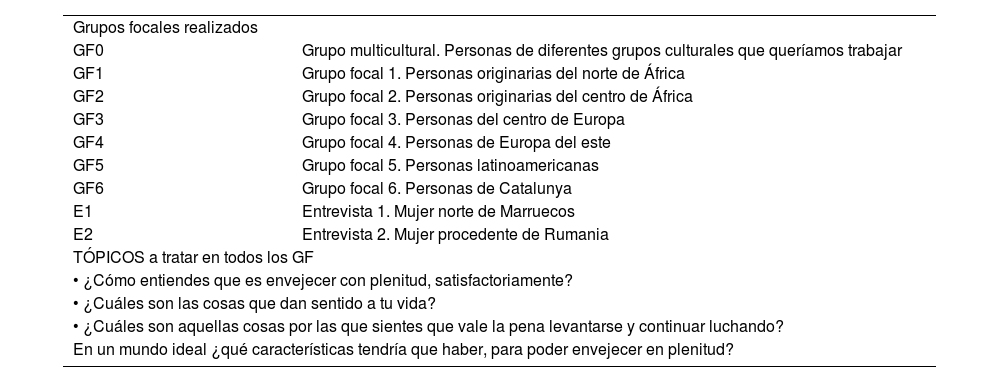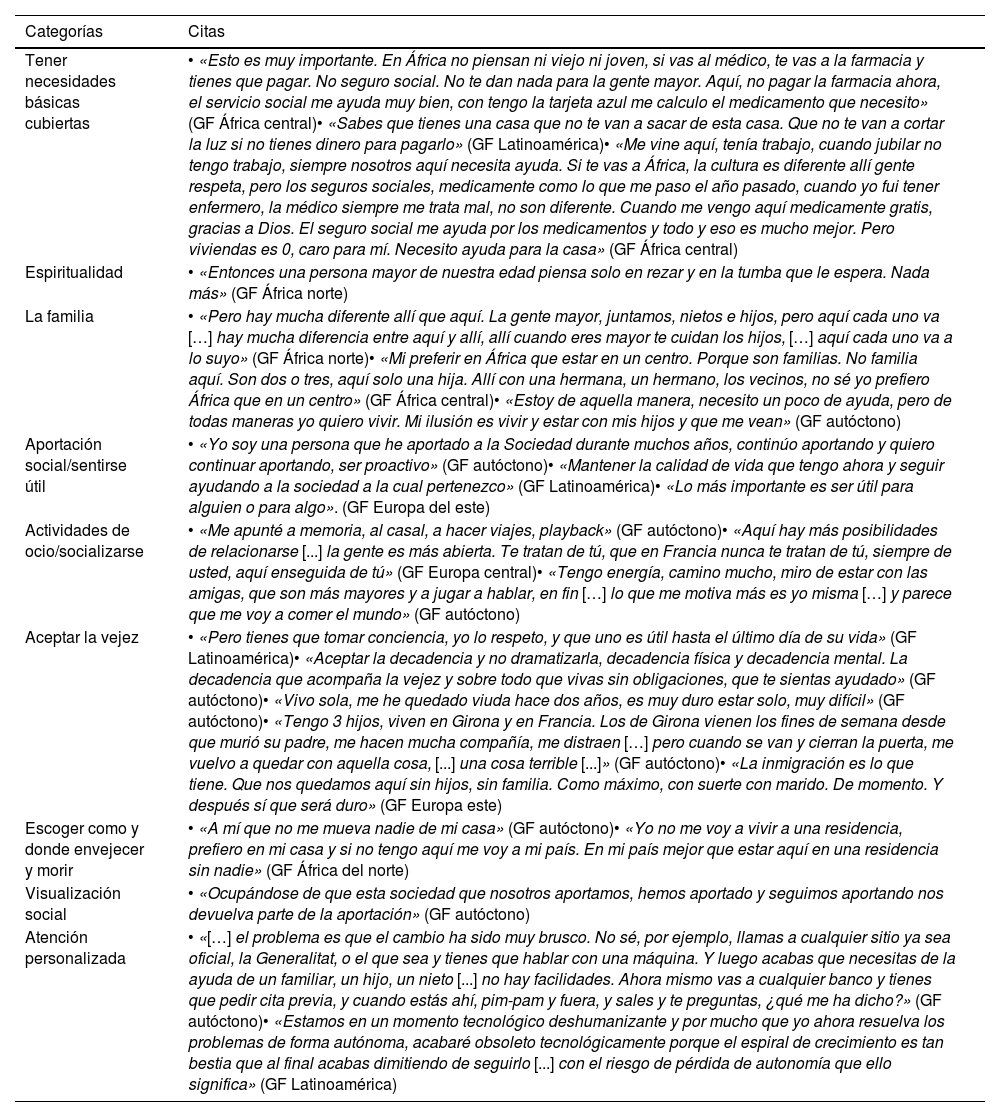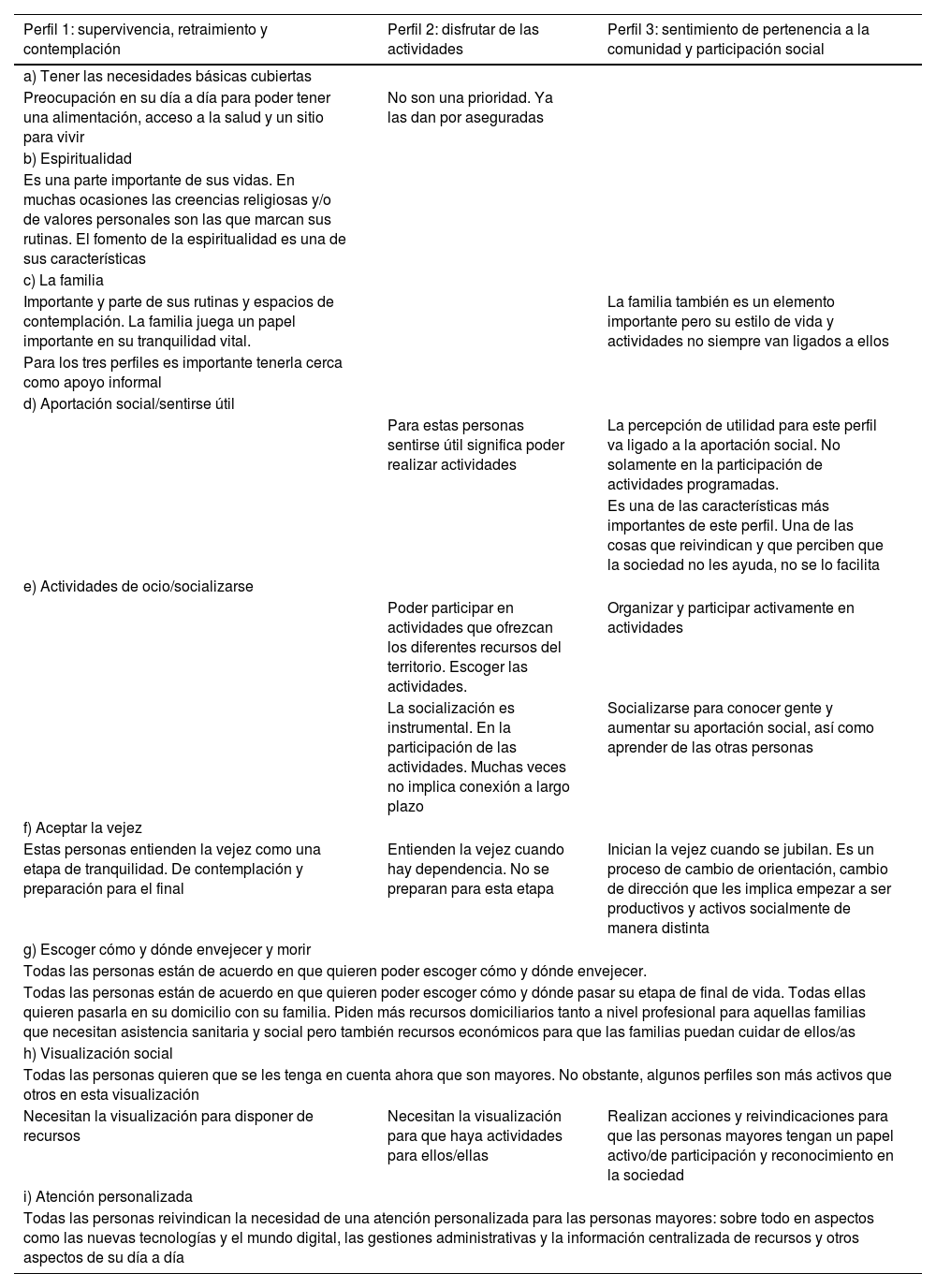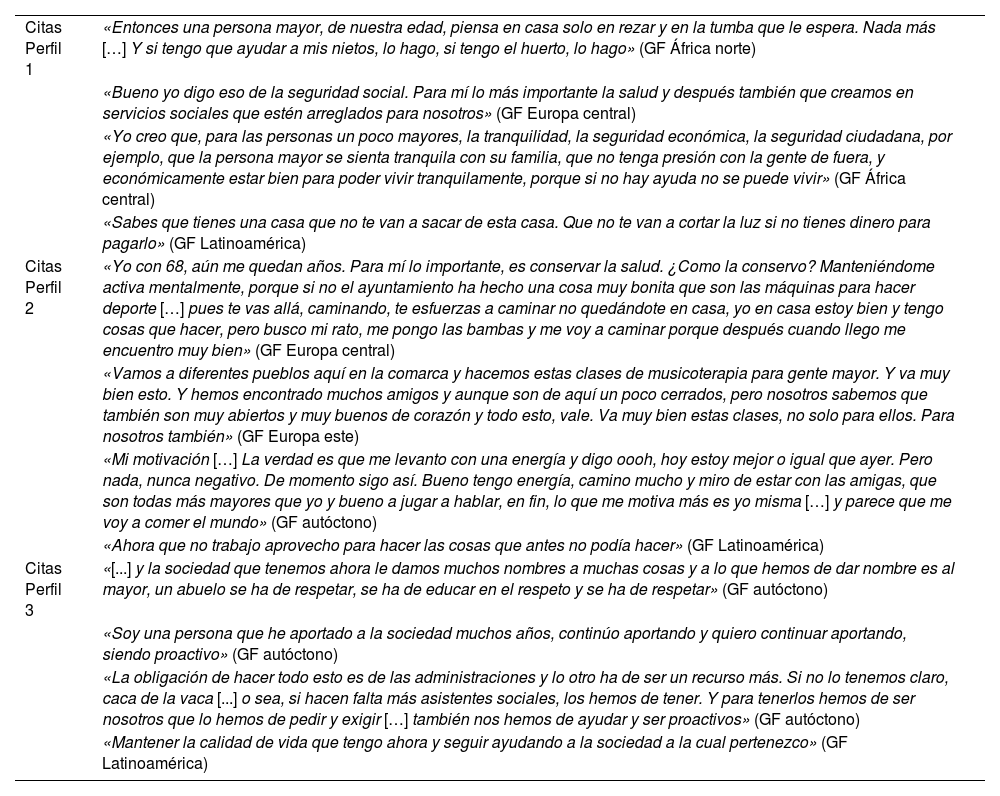Actualmente, en Catalunya la multiculturalidad es cada vez mayor, también entre las personas mayores. No obstante, se conoce poco de los aspectos que dan sentido al envejecimiento y si existen diferencias por origen y cultura.
ObjetivosIdentificar qué es envejecer con sentido para personas mayores de 50 años de orígenes y culturas diferentes.
MétodoEstudio realizado con personas mayores de 50 años de diferentes culturas que conviven en la comarca del Alt Empordà (Girona). Se utilizó una metodología cualitativa, con siete grupos focales (GF) y dos entrevistas en profundidad.
ResultadosIdentificamos nueve factores para envejecer con sentido: 1) tener las necesidades básicas cubiertas; 2) la espiritualidad; 3) la familia; 4) aportar socialmente/sentirse útil; 5) realizar actividades de ocio; 6) aceptar el envejecimiento; 7) poder escoger dónde y cómo envejecer y morir; 8) visualizar a las personas mayores y 9) la atención personalizada. Las diferencias entre las prioridades de estos nueve factores nos han llevado a describir tres maneras de envejecer con sentido: a) envejecimiento de contemplación, b) envejecer disfrutando de las oportunidades y c) envejecimiento reivindicando ser agentes de pleno derecho.
ConclusionesEl colectivo de personas mayores es heterogéneo, de la misma forma que lo es el resto de la sociedad. Esta heterogeneidad implica maneras diferentes de atender la vejez con sentido, así como las necesidades que se derivan. Es importante trabajar con los profesionales sociales y sanitarios para que entiendan la necesidad de conocer a la persona y sus intereses para individualizar mejor la atención.
Currently in Catalonia, multiculturalism is increasing, also among older people. However, little is known about the aspects that give meaning to aging or whether there are differences by origin and culture.
ObjectivesIdentify what it means to age meaningfully for people over 50 years of age from different origins and cultures.
MethodWe present a study carried out with people over 50 years of age from different cultures who live together in the Alt Empordà region (Girona). We have worked with qualitative methodology, 7 focus groups and 2 in-depth interviews.
ResultsWe identified 9 factors to age meaningfully: 1- Having basic needs covered. 2- Spirituality. 3- Family. 4- Contributing socially/feeling useful. 5- Carrying out leisure activities. 6- Accepting aging. 7- Being able to choose where and how to grow old and die. 8- Visualize the elderly and 9- Personalized attention. The differences between the priorities of these 9 factors have led us to describe three ways of aging with meaning: a) Aging of contemplation, b) Aging enjoying opportunities and c) Aging claiming to be full-fledged agents.
ConclusionsThe group of older people is heterogeneous in the same way as the rest of society. This heterogeneity implies different ways of understanding old age with meaning as well as the needs that arise. It is important to work with social and health professionals so that they understand the need to know the person and their interests to better personalize care.
Artículo
Comprando el artículo el PDF del mismo podrá ser descargado
Precio 19,34 €
Comprar ahora






